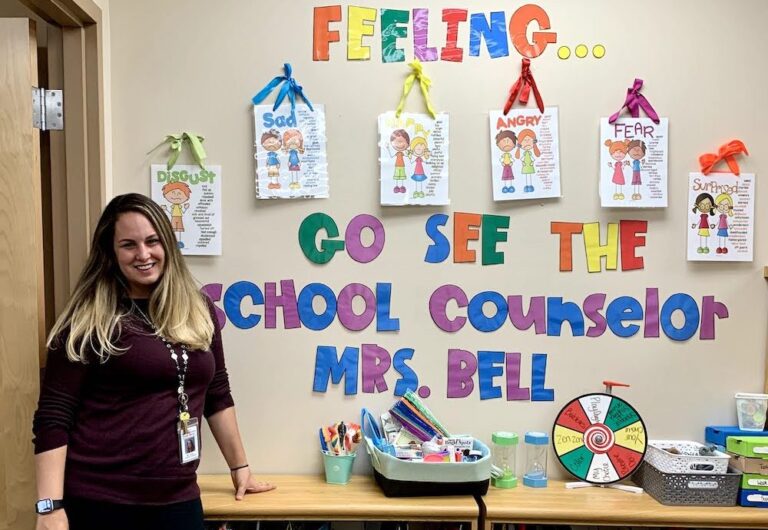What Other Jobs Can Former Teachers Do? – Best Jobs For Former Teachers In 2023
What other jobs can former teachers do? is a wonder that worries many former educators. Many former teachers are well-prepared for a successful transition into other careers thanks to the experience and skills they acquired as teachers. In this post, we’ll look at potential alternative job for former teachers who want to leave the classroom.
Keep reading for more details!
Transferable Skills Of Teachers
Strong communication skills are one of the most important things former teachers bring to the table. Teachers communicate with students, parents, and other teachers for a large portion of their workday, and this experience is transferable to many different careers.
Another essential talent is classroom management, which calls for empathy, patience, and excellent planning and organizational skills. In many other industries, these skills are also in high demand.
With a master’s degree in education, teachers can gain knowledge of curriculum development and training programs that will give them an edge in their career exploration. Many teachers find themselves advancing in their careers by taking on roles outside of teaching that may require life experience or research-based knowledge related to their field.
For example, a teacher may take on a position at a museum for part-time work or become involved in educational programs for extra salary income over the course of a year or more. The transferable skills that teachers bring from the classroom setting play an important role in their success in any new career they choose to pursue.
What other jobs can former teachers do?
What other careers might former teachers find fulfilling? One alternate career route is that of an educational consultant or instructional designer, where they can use their knowledge to assist in the creation of educational programs and curriculum.
Another choice is to become a training and development professional, where they can use their classroom experience to create training programs for companies.
Those who are interested in a non-profit work environment might do well as a non-profit program coordinator , while those who are interested in a leadership role might try becoming a school administrator. Former teachers can also use their writing skills to work as a freelance writer or editor, or even as a speech-language pathologist, helping people communicate clearly.

The 10 Best Jobs For Former Teachers
There are numerous alternative opportunities available if you decide to leave the classroom. Your teaching skills will undoubtedly transfer to a variety of other career opportunities. Here are just a few examples of jobs that former teachers would excel in.
1. Education Administrator
Want to move up in the educational field? then you might think about working as an educational administrator. A primary, secondary, or boarding school is where you can find administrative work as a principal. As an alternative, you may take on the role of superintendent and run a whole school districts.
These experts concentrate on developing an environment that helps students study. Administrators have some practical duties at schools, despite the fact that they work primarily at the macro level. You could, for instance, manage budgets and observe and assess teachers.
A master’s degree in education administration, a master of public administration, or an advanced degree in a similar field is often required to work as an education administrator.
2. Training and Development Manager
One of the best jobs for former teachers is corporate trainer because it is all about educating employees. From managing training budgets to developing training programs, these experts oversee staff training.
Managers of training and development may work in healthcare facilities, nonprofit organizations, or corporate and technological environments.
A bachelor’s degree, together with related work experience, or a master’s degree in human resources, training and development, public administration, or business administration are typically requirements for becoming a manager.
3. Education Consultant
You can use your teaching skills in a more general way as an educational consultant. These experts offer guidance to schools or school systems on a particular subject. For instance , a tech-focused consultant might advise schools on how to incorporate technology into their curricula.
Some education consultants work for companies that specialize in education, contributing to the creation of teaching aids and materials for the classroom. Numerous consultants work on several projects at once and are self-employed. A bachelor’s degree in education or a closely related field is often required.
4. Postsecondary Education Administrator
Want to work in higher education? Then think about working as an administrator in higher education. You will be in charge of faculty research, student assistance, and all academic matters in this role.
At both public and private colleges and universities, you can work in a variety of areas, such as student affairs, admissions, and the registrar’s office. As academic deans and provosts, some administrators even take on leadership responsibilities.
Even though a bachelor’s degree may be sufficient for some postsecondary education administrator positions, a master’s degree in higher education administration or public administration is typically required. A doctorate may be required for an executive role like dean or provost.
5. Museum Director
Numerous museums offer educational programs, which may include things like organizing summer camps for children, conducting science experiments, and holding art workshops.
These educational departments and programs are coordinated by a museum education director. It’s a terrific job for former teachers because common responsibilities may involve creating lesson plans and new educational programs.
Some museums prefer you to have a master’s degree in education, field studies , or a comparable field, yet you may be able to get a job as a museum director with just a bachelor’s degree and a few years of teaching experience.
6. Human Resources Manager
Teachers and effective HR managers share many interpersonal skills. Just like teachers do with students in the traditional classroom, they interact with people on a daily basis and deal with workplace problems and employee relations.
You must recognize the value of interpersonal and communication skills in your role as HR manager. HR managers carry out a variety of tasks, such as determining how to best utilize employees’ skills inside a company, supervising hiring and benefits, and resolving personnel concerns.
You’ll need a bachelor’s degree and several years of relevant experience to work as an HR manager. You may become a more appealing candidate if you have a master’s degree in human resources , business administration, or public administration.
7. Instructional Coordinator
For schools and districts, instructional coordinators—also known as curriculum specialists—set teaching and curriculum standards.
These experts create and implement, carry out, and assess the efficacy of general curriculum designs. Plans for teaching must ensure that students are ready to satisfy local, state, and federal benchmarks.
Typically, in addition to obtaining state license, you require a master’s degree in education or curriculum design to work as an instructional coordinator. To find out more about license requirements, contact your state’s board of education.
8. Education Policy Analyst
In order to enhance the public school system, education policy analysts frequently work for nonprofits, think tanks, lobbies, and government agencies. Researching the effects of education policies on students and how educators might improve them is a common task.
A master’s degree in education, public policy, or child development is typically required for positions as an education policy analyst.

9. School or Career Counselor
You might be interested in working as a school or career counselor if you still want to assist students in succeeding (just not as a teacher).
Counselors at schools frequently work with students who struggle academically or emotionally because of behavioral, mental, or emotional issues. Contrarily, career counselors assist students in high school and college in choosing the profession they want to enter after graduation.
A master’s degree in educational psychology or school counseling is typically required to work as a counselor. In some states, you might additionally need to get a license.
10. Project Manager
Large enterprises, nonprofits, government agencies, healthcare providers, and educational institutions all have project managers who are in charge of their initiatives. Planning and strategizing, managing employees, establishing deadlines, securing resources, and laying out budgets are typical duties.
For former teachers, project management might be an excellent job. Teachers must, after all, be capable of controlling the many moving elements in their classrooms! The best project managers are extremely well-organized and adept communicators.
Steps To Finding The Right Career
Although transitioning to a new career might be difficult, former teachers can succeed with the correct planning and research. Assessing their hobbies and transferable skills as well as looking into the job market to find careers that fit with their objectives is the first step.
To be competitive in their new field, they might also need to get more training or qualifications. Last but not least, it’s crucial to write a strong CV and cover letter that emphasizes their experience as a teacher and how it will benefit their future career.
Conclusion
In conclusion, there are many fantastic alternative accessible jobs for retired teachers looking for a change. Former teachers can succeed in a range of fields, including education, business, and non-profit, by utilizing their transferrable skills, such as good communication, organizational skills, and experience in the classroom.
Former teachers might choose a career path that offers both personal satisfaction and a comfortable yearly income with the correct training and research.
Therefore, there are many other careers worth considering, whether one is looking to change careers after working in the education field for a while or is a retired teacher looking for a new challenge. Follow us at Seattleducation.com for more information!






